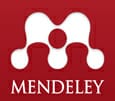HR Roles in Addressing the Challenges of Industry 4.0: Indonesian Employees Cross-Industry Perceptions
Main Article Content
Abstract
In light of rapid changes in technology known as Industry 4.0 (IN4.0), this study aims to examine how Indonesian employees perceive the HRM function is being implemented in their organizations using the Ulrich Multiple Roles of HR model, and whether they believe the HR roles are effective to address the challenges of IN4.0. Cross-industry data was collected from 160 respondents representing five priority industries: food and beverages, automotive, electronics, textiles, and chemicals. Through descriptive and factor analysis, results show that the HR function in Indonesia is still widely administrative in nature, and being an agent of change is the least performed HR role. In addition, the results indicated that the HR roles in Indonesia are changing towards a more strategic direction even though the change is slow. HR practitioners must heed the expectations of employees to ensure there are interventions that can be implemented to prepare human capital for IN4.0. This is the first type of research that examined how Indonesian employees perceive the HR roles in Indonesian industries are being performed, adding to the scant literature on HR roles in an Indonesian context, and addressing the need for relevant studies on the impact of IN4.0 and HR roles.
Article Details

This work is licensed under a Creative Commons Attribution 4.0 International License.

International Journal of Business Studies by Sekolah Tinggi Manajemen IPMI is licensed under a Creative Commons Attribution-ShareAlike 4.0 International License.
Authors who publish with this journal agree to the following terms:
1. Authors retain copyright and grant the journal right of first publication with the work simultaneously licensed under a CC BY-SA Creative Commons Attribution-ShareAlike 4.0 International License that allows others to share the work with an acknowledgement of the work's authorship and initial publication in this journal.
2. Authors are able to enter into separate, additional contractual arrangements for the non-exclusive distribution of the journal's published version of the work (e.g., post it to an institutional repository or publish it in a book), with an acknowledgement of its initial publication in this journal.
3. Authors are permitted and encouraged to post their work online (e.g., in institutional repositories or on their website) prior to and during the submission process, as it can lead to productive exchanges, as well as earlier and greater citation of published work.
4. Copyright Transfer Agreement Form can be downloaded HERE.











